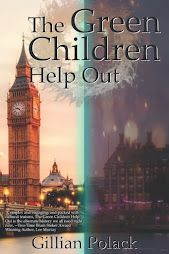Lost culture is exciting. How can something be exciting when we have lost it? Most times when we talk about loss, it’s in terms of the events that caused the loss. The political pressure, the murders – dire events that add up to big cultural losses. Yet, when a culture is lost because of irrepressible cruelty, it leaves traces. For years, I’ve been watching for such traces, to see how much we can know when remnants of a population have been forced away from their homes and when their lives have to be rebuilt from scratch. I don’t want to hear about horror. I want to find out what we can know about what was destroyed. I don’t look for the names of people: I want to know how they lived.
The first and most obvious relic is, in many cases, linguistic. I was just reading a study of eighteenth and nineteenth century Yiddish in Europe. It traced loan words from cultural areas such as food. Those loan words matched with a bunch of trade records and showed that there was a dynamic and strong Jewish butchers’ industry in the Polish-Lithuanain Commonwealth in the seventeenth century. These days most of the surviving descendants are in the US and may not even eat kosher, but some of the Yiddish has snuck into US English and so, in parts of the US, there is a memory of a life that people once led.
Other records come from the persecutors themselves. The records of the Inquisition have vast repositories of cultural information about Spanish Jews. They used it to technically prove that people were reverting to Judaism or had not dropped Judaism. While conversion to Christianity is by a claim of faith, the Inquisition demanded complete cultural change. Those who held religious power in the empire of Spain was key to maintained that Jews were impure and that impurity carried down the line to children and to children’s children so people with Jewish ancestry had to be watched forever in case they shifted back to their ancestral religion.
The “convert, leave or die” ultimatum in Spain in 1492 left a lot of people, then, having to forsake family traditions and local customs. It was not safe to wash and wear nice clothes of Friday, or to send for sweets made by your favourite Jewish confectioner, or even to eat salad on Saturday afternoons. It was possible to be burned alive if any of these small things informed the Inquisition that you were secretly Jewish. Because the Inquisition documented their research into what they regarded as lapsed converts, we know more about everyday life before 1492 as well as after it.
Another hidden aspect of culture is what happens when a whole cultural/religious group is suddenly missing: local culture changes to fill the biggest and most gaping holes. For example, in some places where Jews were sent into exile or mass murdered, the remaining Christian population would suddenly eat more pork. Why? I assume because it proved they were not Jewish and were therefore safe. Big cultural shifts have reasons. This is only one of them, but it’s a deeply-distressing one.
Let me finish on a less distressing note. Superstitions. Some superstitions are folk beliefs that have walked alongside popular culture and religious culture for a while. Others are what’s left when the framework and history for that belief or action is lost. I can imagine that, when we all have flying cars, people will still look both ways before crossing the road, because a hundred years of watching for regular cars instilled a habit so strong we mostly don’t notice we’re doing it.
What look like irregularities in a contemporary culture can tell us a lot about where that culture has been, historically. It’s not the core of my research right now. It’s something I keep an eye on. A lot of the lost elements of culture are the aspects that will bring a novel to life for readers. Understanding how they fit together and create living spaces for real people in our past also helps us write history into fiction more accurately.
Someone sent me to a story the other day because they knew I was interested in alternate Jewish history (because my most recent novel, The Green Children Help Out, has superheroes and alternate Jewish history) and that story rested all of its research on Christian views of history. The concept was a terrific one: what would happen if the relationship between Christianity and Judaism were inverted, with Christianity the minor religion. Making Judaism more Christian both culturally and religiously meant the story didn’t even come close to exploring the concept. The major players were changed, but the everyday culture was not.
It’ll be a while before I can write a novel using these historical explorations, unless I want to follow the path of the story I so dislike. Before I can bring my imagination to play and tell stories based upon hidden and lost history, I need to find as much as I can about the hidden and lost histories. It’s a marvellously fun trail, but the research is happening now. Old and trusty studies aren’t nearly as useful as conferences and conversations with those doing the research.


No comments:
Post a Comment
Note: only a member of this blog may post a comment.